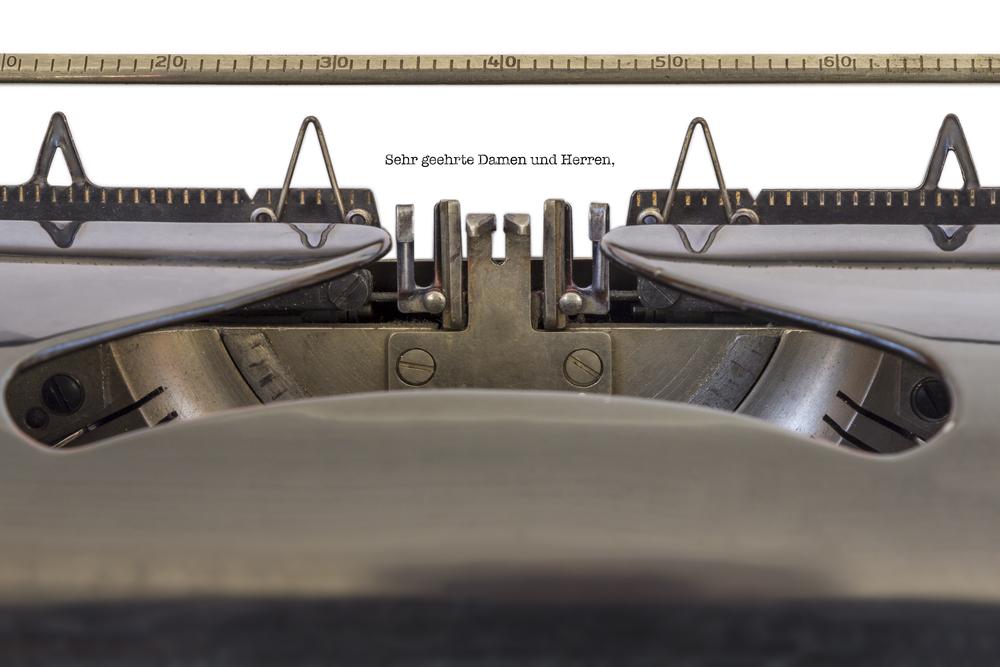
Need to write an email in German but don’t know where to start? Check out this post for an American guide to writing German emails.
As someone who is expecting to write a German email for the Goethe-Institut, I had a hard time finding a guide that would direct me towards success. The email for the Goethe-Institut is part for the Adult A1 Exam and I would need to complete it for full points. However, when it comes to preparing for this, there were a lot of things that I needed to consider.
For example, what if the exam wanted me to write a formal letter rather than an informal one. In addition, how would I start it and end it?
Therefore, if you’re planning to write an email in German and need some tips, you’ve come to the right place. This post alone highlights some salutations and closings you could use for the email as well as how to format the body.
German Language & Culture Series
P.S. This is a post in my German Language & Culture series. Here is the complete series:
German Addresses: German Address Format: How to Mail a Letter to Germany
German Time: The Non-Native Speaker Guide to Telling Time in German
German Greetings: The 10 Most Common German Greetings and Introductions
German Numbers: The Ultimate Guide for Learning German Numbers 1 to 100
German Alphabet: The Best Alphabet Guide of All Time
German Days of the Week: A Beginner’s Guide to the Days of the Week in German
German Emails: The American Guide to Writing German Emails
German Body Parts: A Step-by-Step Guide to the Body Parts in German
German Vegetables: The Ultimate Guide to Vegetables in German
German Pronouns: The American Guide to Learning German Pronouns
German Colors: Colors in German: A One Stop Resource
German Fruits: Fruits in German: What You Need to Know
German TV: 10 German TV Shows You Need to Watch
German Curses: German Swear Words: What You Need to Know
German Idioms: 10 German Idioms Every American Should Know
Informal or Formal Address? (german emails)
Whenever you start an email in German, it’s important for you as the writer to be aware of who you are addressing. This is because in German addressing someone with the second-person pronoun “you” in English translates to Sie and du. Sie is the formal third-person pronoun of “you” in German while du is the second-person pronoun.
Germans use the pronoun Sie in emails when they are addressing someone they do not know or someone in authority. Therefore, it’s common to see Sie used in business emails with clients or in job applications. However, Germans use the pronoun du in emails when they are addressing a friend or someone else they know. So, this is common to see in emails between family members or best friends.
Therefore, if you’re unsure of whether to address your recipient formally or informally, be sure to take note of the relationship you have with them. This is key to determining whether to use Sie or du in your emails as well as which salutation or closing to use.
Salutations (german emails)
A salutation in Germany translates as die Anrede in German. It is a greeting used at the beginning of an email and it can be informal or formal.
Informal Salutations
Here are some informal salutations that you can use in your email if you are addressing someone informally:
Lieber Andreas, – “Dear Andreas”
Close to the English equivalent of “Dear”, Lieber… is a very informal way to open a letter. In fact, because of the German nominative case, the salutation Lieber… is only used to greet males you know casually.
Liebe Emily, – “Dear Emily”
Similar to the above salutation, Liebe… is another informal way to open a letter. The only difference is that this salutation is only used to greet females you know casually.
Hallo Andreas und Emily, – “Hello Andreas and Emily”
Lastly, Hallo… is another informal way to begin German emails. It is the equivalent of “Hello” in English and it can be used to address both males and females together or separately.
Formal Salutations
Here are some formal salutations that you can use in your email if you are addressing someone formally:
Sehr geehrte Damen und Herren, – “Dear Sir or Madam/Dear Ladies and Gentlemen”
Close to the English equivalent of “Dear Sir or Madam”, Sehr geehrte Damen und Herren is a formal way to begin a German email to someone you do not know. Sehr geehrte… also translates to “very honored” in English and it’s used for people the recipient holds in high esteem.
Sehr geehrter Herr Schneider, – “Dear Mr. Schneider”
Similar to the above salutation, Sehr geehrter Herr… is another way to formally begin a German email. The only difference is that this salutation is used to greet one man formally.
Sehr geehrte Herren, – “Dear Gentlemen”
This formal salutation, Sehr geehrte Herren, is used when you want to write to two men formally you don’t know.
Sehr geehrte Frau Scholz, – “Dear Mrs. Schneider”
Similar to the male equivalent, Sehr geehrte Frau… is another way to formally begin a German email. The only difference is that this salutation is used to greet one woman formally.
Sehr geehrte Damen, – “Dear Ladies”
This formal salutation, Sehr geehrte Damen, is used when you want to write to two women formally you don’t know.
Body (german emails)
The most important thing to keep in mind when you’re writing the body of a German email is to never capitalize the first word after the salutation.
For example, if you started your email with:
Liebe Anna,
mein Name ist Jade. Ich komme aus Amerika aber ich wohne in Berlin.
The first word in this example mein would not be capitalized. This is due to the fact that the first word in the body is followed after a comma from the salutation so it is not a new sentence, hence mein is mein instead of Mein.
Informal Body
Here are some helpful tips you should keep in mind as you’re writing the informal body of your email:
- Emojis and emoticons are very acceptable in the body
- Slang is also welcomed and encouraged
- Abbreviations and jokes are also appropriate
Formal Body
Here are some helpful tips you should keep in mind as you’re writing the formal body of your email:
- Slang is not welcome nor encouraged
- A reserved and polite tone is always best
- Writing assertively is key
Closing (german emails)
Lastly, after choosing a salutation and writing the body, it is finally time to bring your email to a close. Like any piece of writing, please make sure to check your work for any spelling errors or grammar mistakes. As Americans, we don’t normally capitalize ALL nouns like the Germans do, so be sure to check your email to ensure no noun gets left behind.
In addition, like a salutation, there’s an informal and formal way to write a closing. Unlike English, these closings do not require a comma after them but, like English, who you’re addressing matters.
Informal Closings
Here are some informal closings you can use to end your email:
Viele Grüße – “Many regards”
This informal closing is closely translated to “Many regards” in English and it can also be shortened to VG in casual emails.
Liebe Grüße – “Warm regards”
This informal closing is closely translated to “Warm regards” in English and it can also be shortened to LG in casual emails.
Beste Grüße – “Best regards”
This informal closing is closely translated to “Best regards” in English but I don’t believe there is a common abbreviation I am aware of.
Dein(e) – “Yours”
This informal closing is the equivalent of “Yours” in English and the spelling changes based on the writer. If you are a female writing the email, you would spell it as Deine. However, if you are a male writing the email, you would spell it as Dein.
Formal Closings
Here are some formal closings you can use to end your email:
Mit freundlichen Grüßen – “With friendly regards”
This formal closing is the most widely used closing throughout Germany. It closely translates to “With friendly regards” in English and it can be abbreviated as MFG.
Mit herzlichen Grüßen – “With kind regards”
This formal closing is the equivalent of “With kind regards” in English but I don’t believe there is a common abbreviation I am aware of.
Mit besten Grüßen – “With best regards”
This formal closing is the equivalent of “With best regards” in English and like the previous closing, there’s no common abbreviation.
Ihr(e) – “Yours”
This formal closing is the equivalent of “Yours” in English and like its informal counterpart, the spelling changes based on the writer. So, if you are a female writing the email, you would spell it as Ihre. However, if you are a male writing the email, you would spell it as Ihr.
Overall, I really hope you enjoyed reading this American guide to writing German emails. Please let me know in the comments down below which fact about writing German emails surprised you the most. I would love to hear from you!
***P.S. If you’re looking to go more in-depth with writing German emails, be sure to check out this video as well!***
Love this post? Pin it for later!

Follow me on Instagram!











Leave a Reply